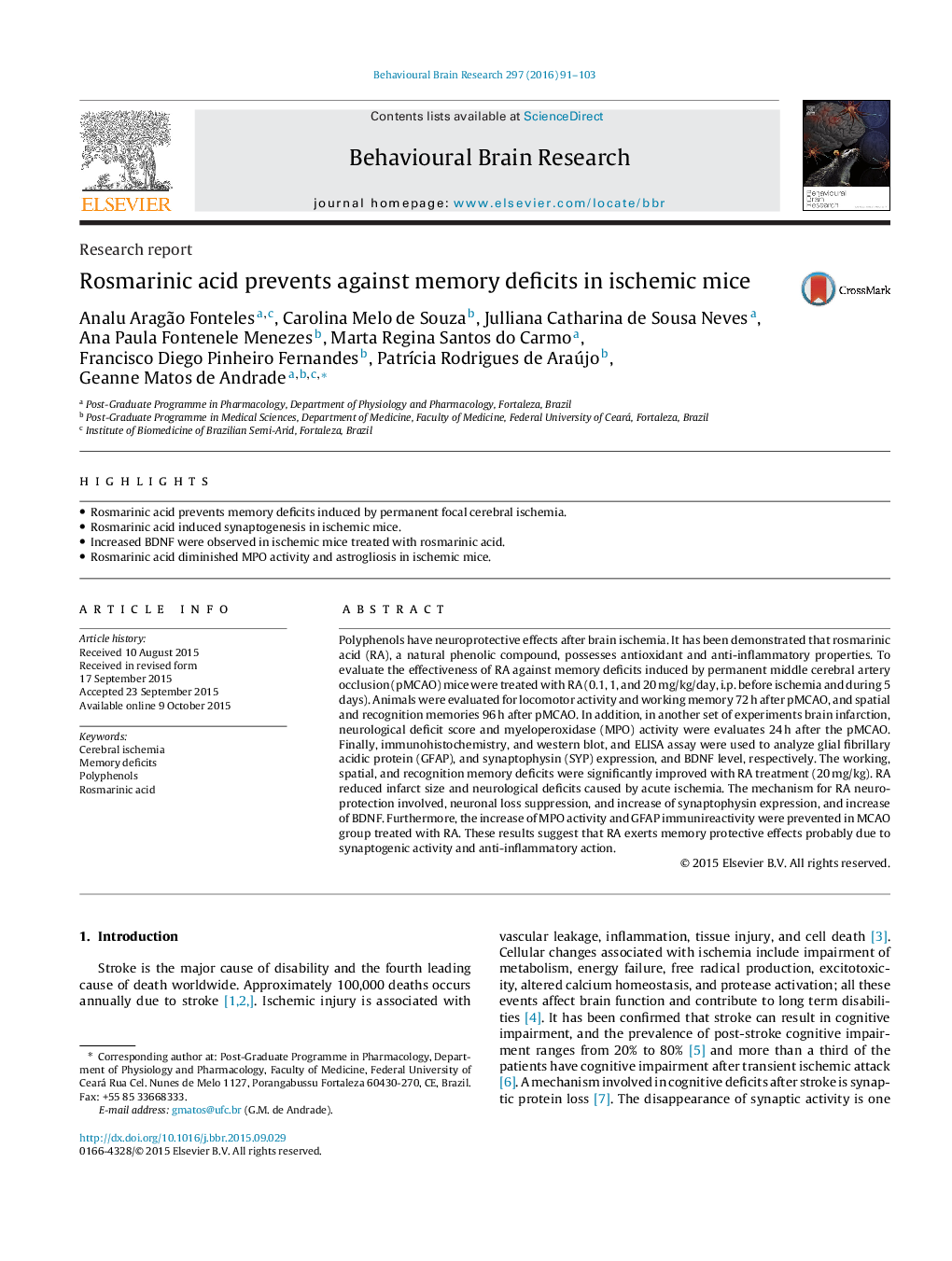| کد مقاله | کد نشریه | سال انتشار | مقاله انگلیسی | نسخه تمام متن |
|---|---|---|---|---|
| 6256370 | 1612935 | 2016 | 13 صفحه PDF | دانلود رایگان |
- Rosmarinic acid prevents memory deficits induced by permanent focal cerebral ischemia.
- Rosmarinic acid induced synaptogenesis in ischemic mice.
- Increased BDNF were observed in ischemic mice treated with rosmarinic acid.
- Rosmarinic acid diminished MPO activity and astrogliosis in ischemic mice.
Polyphenols have neuroprotective effects after brain ischemia. It has been demonstrated that rosmarinic acid (RA), a natural phenolic compound, possesses antioxidant and anti-inflammatory properties. To evaluate the effectiveness of RA against memory deficits induced by permanent middle cerebral artery occlusion (pMCAO) mice were treated with RA (0.1, 1, and 20Â mg/kg/day, i.p. before ischemia and during 5 days). Animals were evaluated for locomotor activity and working memory 72Â h after pMCAO, and spatial and recognition memories 96Â h after pMCAO. In addition, in another set of experiments brain infarction, neurological deficit score and myeloperoxidase (MPO) activity were evaluates 24Â h after the pMCAO. Finally, immunohistochemistry, and western blot, and ELISA assay were used to analyze glial fibrillary acidic protein (GFAP), and synaptophysin (SYP) expression, and BDNF level, respectively. The working, spatial, and recognition memory deficits were significantly improved with RA treatment (20Â mg/kg). RA reduced infarct size and neurological deficits caused by acute ischemia. The mechanism for RA neuroprotection involved, neuronal loss suppression, and increase of synaptophysin expression, and increase of BDNF. Furthermore, the increase of MPO activity and GFAP immunireactivity were prevented in MCAO group treated with RA. These results suggest that RA exerts memory protective effects probably due to synaptogenic activity and anti-inflammatory action.
Journal: Behavioural Brain Research SreeTestContent1 - Volume 297, 15 January 2016, Pages 91-103
